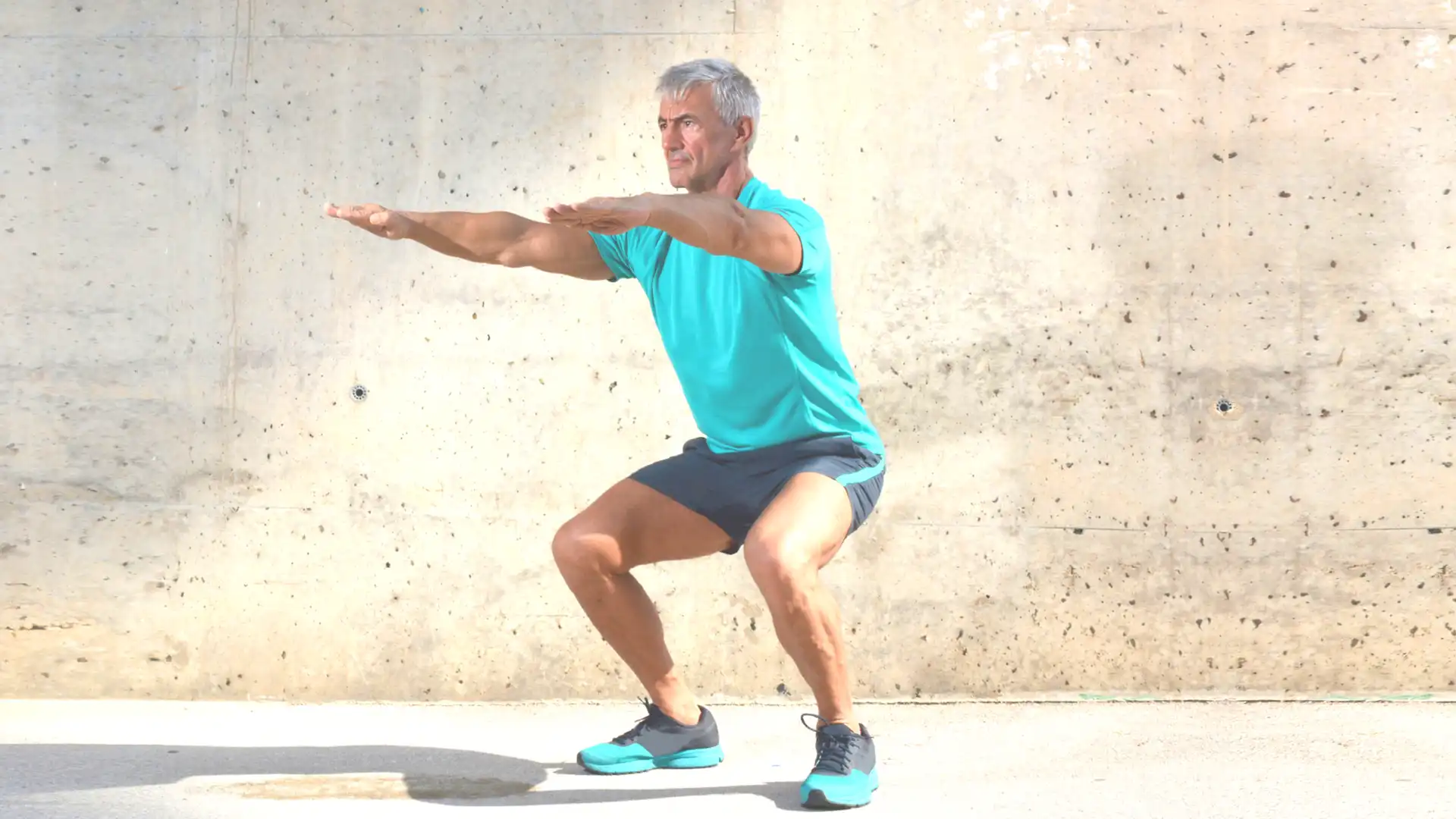Yoga for Military Veterans with PTSD – Study Highlights Common Research Challenges

Approximately 23% of military veterans are estimated to suffer from symptoms of post-traumatic stress disorder (PTSD), which often include nightmares, flashbacks, heightened reactivity to environmental situations, social isolation, anxiety, and depression. Many adults with PTSD may not experience long-term relief from treatments like psychotherapy or medication, leaving them seeking alternative therapies including yoga.
To date, evidence of the benefits of yoga for military veterans with PTSD and other related symptoms including anxiety and depression is inconclusive. Whereas some studies find that yoga may be helpful for relieving symptoms, others report conflicting results.
To shed more light on this dilemma, a team of researchers conducted a scientifically rigorous investigation of the effects of a Kripalu yoga program for military veterans. The study is considered rigorous because participants were randomly assigned to either a yoga intervention or a wait-list control group, the yoga program was well-defined and had been pilot tested previously, and researchers used previously validated clinical and self-report measures of traumatic symptoms at multiple time points throughout the study.
The Kripalu yoga intervention consisted of 2, 90-minute weekly sessions for 10 consecutive weeks. Classes were taught by advanced Kripalu yoga instructors, and consistent of a brief check-in, breathing and centering exercises, 10-15 minutes of physical warm-up, 50-55 minutes of yoga poses, breath work and moving meditation, and approximately 5-10 minutes of relaxation. Classes were organized around a number of themes including relationship to self, others and the environment, reducing stress, and increasing strength and flexibility. Participants were also requested to engage in a 15-minute, audio-guided daily yoga practice.
Of the 379 veterans recruited to participate, 74 (8.1% female, mean age 46.74 years) were found to be eligible for the study. Of these, 51 were randomized to either the yoga group (n=26) or a waitlist control group (n=25). Of these participants, 10 (38%) completed the yoga intervention, and 7 (28%) in the waitlist group attended the yoga program when it was offered a second time.
Results of the study were mixed. Yoga group member’s PTSD symptom levels on a diagnostic interview dropped from severe to moderate for the previous week, but not the past month. Control group member’s symptoms remained in the severe range. However, both the yoga and control groups demonstrated comparable reductions in total PTSD symptoms at the end of the 10-week program period. There were also no significant differences between the yoga group and control group in self-reported symptoms of PTSD. High dropout rates, and small sample sizes require us to interpret these results cautiously.
Challenges faced and lessons learned when offering yoga to veterans
This well-designed study was severely limited in its ability to test for the effects of a yoga program for military veterans due to difficulties with participant recruitment and retention.
Participant recruitment, retention and practice follow-through in yoga research, and in other disciplines such as psychology, are a perennial problem. It raises the question whether the interventions that we design are feasible, suitable, and acceptable to the individuals we hope to serve, or whether we need to reconsider our approach. In some cases, we experience success, while in others, such as the present study, these questions can plague us.
It is important to see this study as an opportunity for learning rather than a failure. Its authors are to be commended for publishing their results. Too often null or negative findings never see the light of day, which can lead to faulty conclusions about a program’s true effectiveness.
Here are 3 important lessons learned
-
Recruitment and data collection do not always go as planned. When designing this study, researchers anticipated that recruitment, baseline assessment, and randomization would take approximately 2 weeks. In reality, it took 4-12 weeks. This extended time interval may partially explain the considerable loss of participants.
-
Motivation is key. Although this was not explicitly addressed, the study’s authors propose that those who completed the yoga program may have done so because they were more motivated to attend than those who dropped out. They did not find a relationship between the severity of PTSD symptoms and adherence or attrition.
Consistent with any research in which participants are asked to attend a program of any length, we are challenged to design interventions that people perceive to be beneficial, and to generate the motivation to attend. In the current study, participants received 260 to 335 dollars in compensation for completing the program and assessments, yet this was not enough to sustain their engagement. This may be particularly true for studies of individuals experiencing elevated physical or psychological stress or trauma.
-
Creating and implementing programs that respond to participant need. One of the greatest challenges of intervention research rests in matching demands of the program with a participant’s physical and psychological capacities, and ability to attend and participate. Not doing so can be the downfall of even the most beneficial, evidence-based therapies. The goal of research is not only to understand whether an approach works, but to delineate what works, for whom, and under what conditions.
Undoubtedly researchers and yoga program developers will continue to grapple with this dilemma, and perhaps solve the riddle as the field continues to progress. Once resolved, we can be even more confident in our understanding of yoga’s benefits.
 B Grace Bullock, PhD, E-RYT 500 is a psychologist, research scientist, educator, yoga and mindfulness expert and author of the acclaimed book, Mindful Relationships: Seven Skills for Success– Integrating the Science of Mind, Body and Brain. She specializes in working with large and small organizations to improve health and wellbeing, job satisfaction, engagement and business performance by using evidence-based approaches grounded in applied neuroscience, interpersonal neurobiology, psychophysiology, psychology and the science of mindfulness to reduce stress and increase health, wellbeing and resilience, and to improve the quality of relationships. She offers mindfulness-informed coaching, training, education and leadership enhancement programs to professionals interested in reducing stress and cultivating skillful, successful personal and professional relationships. Dr. Bullock is an Associate Scientist at the Oregon Research Institute, Adjunct Professor at Endicott College, Faculty at the Oregon Mind Body Institute, and the Founding Director and CEO of the International Science & Education Alliance, an organization devoted to the design, development, training and evaluation of mindfulness-based programs to support health and wellbeing, and to promote effective leadership, decision-making and social change. She excels in the development, testing and validation of innovative programs, and quantitative, qualitative and mixed-methods assessments for clinical, organizational leadership, education, systems evaluation and mindfulness-oriented research. She is a frequent contributor to Mindful and Yoga International, and the former editor in chief of the International Journal of Yoga Therapy. www.bgracebullock.com www.isaea.com
B Grace Bullock, PhD, E-RYT 500 is a psychologist, research scientist, educator, yoga and mindfulness expert and author of the acclaimed book, Mindful Relationships: Seven Skills for Success– Integrating the Science of Mind, Body and Brain. She specializes in working with large and small organizations to improve health and wellbeing, job satisfaction, engagement and business performance by using evidence-based approaches grounded in applied neuroscience, interpersonal neurobiology, psychophysiology, psychology and the science of mindfulness to reduce stress and increase health, wellbeing and resilience, and to improve the quality of relationships. She offers mindfulness-informed coaching, training, education and leadership enhancement programs to professionals interested in reducing stress and cultivating skillful, successful personal and professional relationships. Dr. Bullock is an Associate Scientist at the Oregon Research Institute, Adjunct Professor at Endicott College, Faculty at the Oregon Mind Body Institute, and the Founding Director and CEO of the International Science & Education Alliance, an organization devoted to the design, development, training and evaluation of mindfulness-based programs to support health and wellbeing, and to promote effective leadership, decision-making and social change. She excels in the development, testing and validation of innovative programs, and quantitative, qualitative and mixed-methods assessments for clinical, organizational leadership, education, systems evaluation and mindfulness-oriented research. She is a frequent contributor to Mindful and Yoga International, and the former editor in chief of the International Journal of Yoga Therapy. www.bgracebullock.com www.isaea.com
For more information see www.bgracebullock.com.
Sources
Hoskins, M., Pearce, J., Bethell, A., Dankova, L., Barbui, C., Tol, W. A., . . . Bisson, J. I. (2015). Pharmacotherapy for post-traumatic stress disorder: systematic review and meta-analysis. The British Journal of Psychiatry, 206(2), 93-100. doi:10.1192/bjp.bp.114.148551
Johnston, J. M., Minami, T., Greenwald, D., Li, C., Reinhardt, K., & Khalsa, S. B. (2015). Yoga for military service personnel with PTSD: A single arm study. Psychological Trauma: Theory, Research, Practice, and Policy, 7(6), 555-562. doi:10.1037/tra0000051
Macy, R. J., Jones, E., Graham, L. M., & Roach, L. (2015). Yoga for Trauma and Related Mental Health Problems. Trauma, Violence, & Abuse, 152483801562083. doi:10.1177/1524838015620834
Reinhardt, K. M., Taylor, J. J., Johnston, J., Zameer, A., Cheema, S., & Khalsa, S. B. (2017). Kripalu Yoga for Military Veterans With PTSD: A Randomized Trial. Journal of Clinical Psychology. doi:10.1002/jclp.22483
Schottenbauer, M. A., Glass, C. R., Arnkoff, D. B., Tendick, V., & Gray, S. H. (2008). Nonresponse and Dropout Rates in Outcome Studies on PTSD: Review and Methodological Considerations. Psychiatry: Interpersonal and Biological Processes, 71(2), 134-168. doi:10.1521/psyc.2008.71.2.134
Seppälä, E. M., Nitschke, J. B., Tudorascu, D. L., Hayes, A., Goldstein, M. R., Nguyen, D. T., . . . Davidson, R. J. (2014). Breathing-Based Meditation Decreases Posttraumatic Stress Disorder Symptoms in U.S. Military Veterans: A Randomized Controlled Longitudinal Study. Journal of Traumatic Stress, 27(4), 397-405. doi:10.1002/jts.21936



